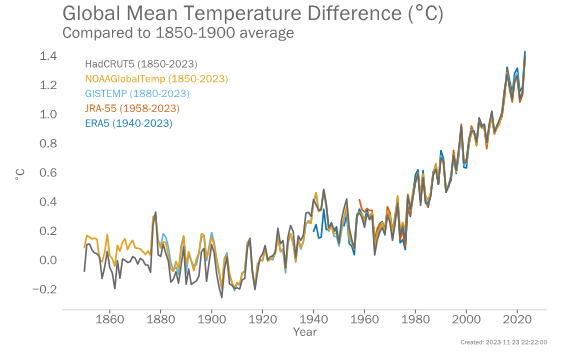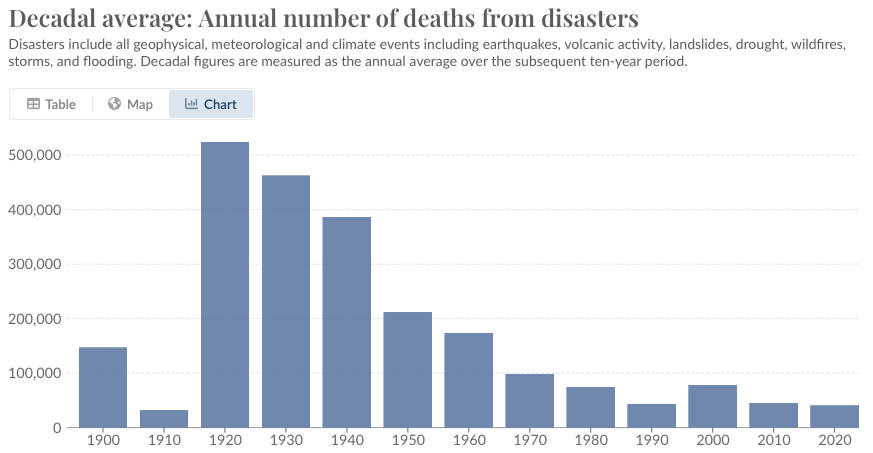U.N. Climate Change Conference Opens During Hottest Year on Record
It seems unlikely that activists' demands to "keep 1.5 alive" will be met.

The World Meteorological Organization (WMO) issued its latest state of the global climate report as part of the kickoff for the opening in Dubai of the 28th Conference of the Parties (COP28) to the United Nations' Framework Convention on Climate Change. Let's just say that according to the WMO, 2023 was really hot compared to the average global temperatures in the late 19th century. How hot?
The global mean near-surface temperature in 2023 (to October) was around 1.40 ± 0.12 °C above the 1850–1900 average. Based on the data to October, it is virtually certain that 2023 will be the warmest year in the 174-year observational record, surpassing the previous joint warmest years, 2016 at 1.29 ± 0.12 °C above the 1850–1900 average and 2020 at 1.27±0.13 °C. The past nine years, 2015–2023, will be the nine warmest years on record.

Correlatively, the WMO reports that the accumulation in the atmosphere of globe-warming greenhouse gases—carbon dioxide, methane, and nitrous oxide—also reached record levels this year. For example, carbon dioxide released chiefly through the burning of coal, oil, and natural gas rose in May from the atmospheric preindustrial level of about 280 to 424 parts per million—a more than 50 percent increase. As temperatures rise, the extent of sea ice declines, land glaciers and ice sheets lose mass, and sea levels rise.
The WMO report lists several extreme weather disasters from the current year, including floods, droughts, cyclones, and wildfires. And while certainly people are impacted by them, it is worth noting that the long-term trend is toward ever fewer deaths from natural disasters. This is largely because a wealthier world has been able to adapt to the impacts caused by natural hazards.

A 2023 preprint by European researchers analyzing global flood mortalities between 1975 and 2022 confirms this trend by finding that floods have become less deadly. "Despite population growth and increasing flood hazards, the average number of fatalities per event has declined over time," they report. In other words, people are, in general, adapting faster to whatever climate change is occurring than it can cause them harm.
Under the terms of the Paris Climate Change Agreement, signatories are supposed to undertake collective efforts to hold "the increase in the global average temperature to well below 2°C above pre-industrial levels and pursuing efforts to limit the temperature increase to 1.5°C above pre-industrial levels."
United Emirates' Sultan Al Jaber, who is the president-designate of COP28, said he's aiming for an "unprecedented outcome" at the conference which would keep alive the hope of achieving the 1.5 degrees Celsius goal of the Paris agreement.
A new analysis, however, calculates that in order to have a 50 percent chance of holding global average temperature below 1.5 degrees Celsius above pre-industrial levels, global greenhouse gas emissions would have to be cut by 43 percent below their 2019 levels by 2030. Given current greenhouse gas emissions and concomitant global temperature trends, it seems unlikely that activists' demands to "keep 1.5 alive" will be met.


Show Comments (123)